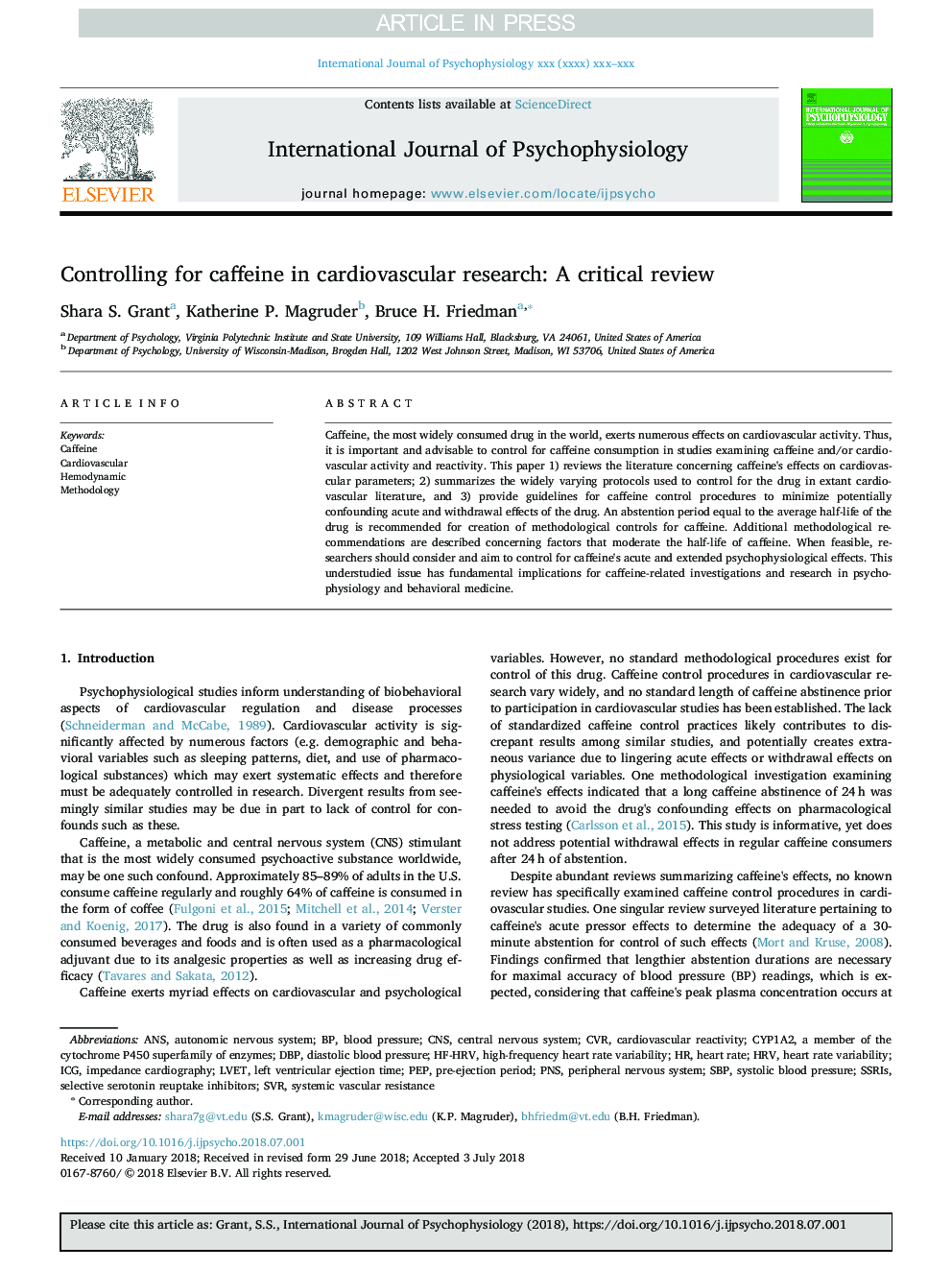| Article ID | Journal | Published Year | Pages | File Type |
|---|---|---|---|---|
| 11023441 | International Journal of Psychophysiology | 2018 | 9 Pages |
Abstract
Caffeine, the most widely consumed drug in the world, exerts numerous effects on cardiovascular activity. Thus, it is important and advisable to control for caffeine consumption in studies examining caffeine and/or cardiovascular activity and reactivity. This paper 1) reviews the literature concerning caffeine's effects on cardiovascular parameters; 2) summarizes the widely varying protocols used to control for the drug in extant cardiovascular literature, and 3) provide guidelines for caffeine control procedures to minimize potentially confounding acute and withdrawal effects of the drug. An abstention period equal to the average half-life of the drug is recommended for creation of methodological controls for caffeine. Additional methodological recommendations are described concerning factors that moderate the half-life of caffeine. When feasible, researchers should consider and aim to control for caffeine's acute and extended psychophysiological effects. This understudied issue has fundamental implications for caffeine-related investigations and research in psychophysiology and behavioral medicine.
Keywords
PEPLVETLeft ventricular ejection timeHF-HRVCYP1A2CVRICGSSRIsSVRSBPDBPHRVAutonomic nervous systemCNSPre-ejection periodMethodologyANScentral nervous systemperipheral nervous systemHeart ratediastolic blood pressuresystolic blood pressureBlood pressurecardiovascularSystemic vascular resistanceselective serotonin reuptake inhibitorsheart rate variabilityhemodynamicCardiovascular reactivityImpedance cardiographyPNSCaffeine
Related Topics
Life Sciences
Neuroscience
Behavioral Neuroscience
Authors
Shara S. Grant, Katherine P. Magruder, Bruce H. Friedman,
